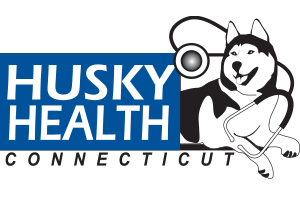
CMO Corner: Lawrence Magras, MD, MBA, FHM, FAAPL
Preventive medicine through routine well-visits and preventive screenings results in improved patient outcomes and lower healthcare costs due to early detection and identification of disease. However, as many Primary Care Providers (PCPs) can attest, it is challenging for patients to overcome barriers, both internal (fear, misunderstanding) and external (access, transportation), to receive preventive screenings and/or schedule routine well-visits. . . read more
The Centers for Disease Control and Prevention (CDC) notes that the use of preventive screenings among Americans is suboptimal with about half the population seeking preventive services.1 Individuals with insurance and those with higher income statuses are more likely to receive the recommended care; however, a large portion of the adult population still do not seek recommended preventive screenings regardless of their insurance status or income level.2 Nationally, rates for preventive screenings and well-visits are typically lower in the Medicaid population when compared to privately covered patients. Such barriers and challenges include access to high-quality and affordable healthcare, availability of healthy food choices, unsafe living environments, poor health literacy, and lack of education and employment opportunities.3,4 Community Health Network of Connecticut, Inc. (CHNCT), the medical Administrative Services Organization (ASO) for the State of Connecticut’s HUSKY Health program, has worked to provide resources and tools to support HUSKY Health members and their providers toward the goal of achieving optimal patient care.
Routine well-visits provide an opportunity to assess the patient’s current medical condition and treatment plan, provide lifestyle education/counseling, administer vaccinations, and discuss the applicable preventive cancer screenings and tests necessary for chronic disease management. In addition, it is an opportunity to foster the patient-provider relationship while the patient is not impacted by an acute illness. Research suggests that a strong patient-provider relationship enhances patient engagement and motivation to adopt healthy lifestyle behaviors leading to improvements with patient satisfaction, compliance with medical protocols, and continuity of care by building trust.5 Trust is vital to patients’ comfort levels in providing accurate responses to screening and survey questions, including depression screenings, the Screening, Brief Intervention, and Referral to Treatment (SBIRT) approach, social determinants of health (SDOH) questionnaires, and other assessment tools utilized during the well-visit exam. In addition, coding for these services is essential for CHNCT to identify patients who may need additional support in managing their health, and connecting them to the appropriate community resources. CHNCT’s Intensive Care Management (ICM) program consists of knowledgeable registered nurses, support staff, and community health workers who are specifically trained on working with individuals facing health disparities. HUSKY Health members also have access to our 24/7 Nurse Helpline and electronic resources and tools including videos, fact sheets, checklists, and self-selected email subscriptions on various health and disease management topics. Members are referred to these resources frequently during telephonic outreaches and member mailings for chronic conditions and gaps in care opportunities.
HUSKY Health members are eligible to receive an annual well-visit every calendar year; a patient seen in December of 2018 can return anytime during 2019 for their next well-visit. Omitting the date of service constraints on the annual well-visit allows ease of scheduling for this important service for both the patient and provider practice. CHNCT encourages providers to utilize its data reporting tools found in CareAnalyzer® and on the HUSKY Health secure provider portal in preparation for the annual well-visit. Providers can access our CareAnalyzer® population health and data analytics software to target members for care coordination services, assess members with high-risk conditions for early intervention and development of disease management programs, identify gaps in care to support wellness programs such as Child Lead screening (by 2nd birthday), Weight Assessment/Counseling for Children 3-17 years of Age (BMI, Nutrition and Physical Activity), and pharmacy adherence for disease conditions based on claims data, and to determine utilization trends. The HUSKY Health secure provider portal contains a variety of reports including gaps in care, hospital admissions and discharges, and ED utilization. There is a flag that identifies members working with our care management team in the reports. Our provider website also contains information and resources that may be of interest, including continuing medical education (CME) opportunities and webinars on a variety of topics that are tailored to the needs of the HUSKY Health population.
Routine well-visits are an important patient encounter and present with an opportunity to identify additional screenings and services specific to patients’ needs, while fostering the patient-provider relationship. Accurate coding of all diagnoses present, as well as all services rendered, provides additional information that may help CHNCT staff identify members with needs to connect to resources. Below are resources available to you to help you identify and remind your HUSKY patients of recommended preventive services .
The HUSKY Health Member Health and Wellness website:
www.huskyhealthct.org/members/health-wellness.htmlThe HUSKY Health Provider website:
www.huskyhealthct.org/providers.htmlCareAnalyzer®:
If you already have a CareAnalyzer® account, click here to log in; to learn more about CareAnalyzer® or to request access, please call 203.949.4194 and ask to speak with a Regional Network Manager.
HUSKY Health Secure Provider Portal:
To access the reports, you must first set up an account on the HUSKY Health secure provider portal by visiting portal.ct.gov/husky, clicking “For Providers,” then “Provider Login.” Once you have an account, you will be able to request access to your reports. You will be notified via email when your report(s) are available for viewing.
Additional Resources and Links:
HUSKY Health Library (Krames Online) contains patient wellness videos, articles, calculators, and assessments to help you and your patients work together to manage their health. https://www.huskyhealthct.org/members/health-library.html
AAP Bright Futures – Recommendations for Preventive Pediatric Health Care
https://www.aap.org/en-us/professional-resources/practice-transformation/managing-patients/Pages/Periodicity-Schedule.aspx
CDC Recommended Child and Adolescent Immunization Schedule for ages 18 years or younger – 2019
https://www.cdc.gov/vaccines/schedules/downloads/child/0-18yrs-child-combined-schedule.pdf
CDC Recommended Adult Immunization Schedule for ages 19 years or older – 2019
https://www.cdc.gov/vaccines/schedules/downloads/adult/adult-combined-schedule.pdf
References:
1 CDC. (2017, September 15). Gateway to Health Communication & Social Marketing Practice. Preventive Health Care. Retrieved January 13, 2018, from CDC: https://www.cdc.gov/healthcommunication/toolstemplates/entertainmented/tips/PreventiveHealth.html
2 Shaw, J. B. (2014, August 8). CDC Morbidity and Mortality Weekly Report (MMWR). Relationship of Income and Health Care Coverage to Receipt of Recommended Clinical Preventive Services by Adults - United States, 2011-2012. Retrieved January 10, 2019, from CDC: https://www.cdc.gov/mmWR/preview/mmwrhtml/mm6331a2.htm
3 CDC. (2017, September 15). Gateway to Health Communication & Social Marketing Practice. Preventive Health Care. Retrieved January 13, 2018, from CDC: https://www.cdc.gov/healthcommunication/toolstemplates/entertainmented/tips/PreventiveHealth.html
4 U.S. Department of Health and Human Services, Office of Disease Prevention and Health Promotion. (2010). National Action Plan to Improve Health Literacy. Washington, DC: Author. https://health.gov/communication/hlactionplan/pdf/Health_Literacy_Action_Plan.pdf
5 Musich, S., Wang, S., Hawkins, K., & Klemes, A. (2016). The Impact of Personalized Preventive Care on Health Care Quality, Utilization, and Expenditures. Population health management, 19(6), 389-397. https://www.ncbi.nlm.nih.gov/pmc/articles/PMC5296930/

Adult Preventive Visits and Child Well-Care Visits Gaps in Care Reports Available on the HUSKY Health Secure Provider Portal
We want you to have direct access to data regarding your attributed HUSKY Health patients. The HUSKY Health secure provider portal provides you with a variety of reports on your patients, regarding topics such as: gaps in care; admissions and discharges; ED utilization; and much more. . . read more
You can also view important well-care information for your adult and child patients attributed to you on our secure provider portal.
The “Adult Preventive Visits - Gaps in Care” report details members ages 21 to 64. This report includes the last preventive service date, if applicable, for members ages 21 to 64, and details members in this age group who meet criteria to be screened for Hepatitis C.
- Adult Preventive Gaps in Care criteria:
- Members 21 to 64 years old are considered “Due” if the member’s last well visit was over a year ago or if there is no record of a visit.
- Hepatitis C Screening criteria:
- The column heading on the report is labeled, “Hepatitis C Screening Recommended” and values listed are either “Yes” or “No”
- “Yes” value explanation:
- Members who were: (1) born between 1945 and 1965 and have never been screened, (2) born between 1945 and 1965 and have been screened but engaged in at-risk behaviors after the screening, or members who (3) engage in at-risk behaviors. At-risk behaviors are defined by the Centers for Disease Control and Prevention (CDC).
- For further information please visit https://www.cdc.gov/hepatitis/hcv/guidelinesc.htm
- “No” value explanation:
- Members born between 1945 and 1965 who have already been screened or members who were not born between 1945 and 1965 and do not engage in at-risk behaviors.
The “Child Well-Care Visits Gaps in Care” report details members ages 0 to 21. This report details the last service date for well-child visits for members ages 0 to 21 and the last service date for fluoride treatments for members ages 0 to 6.
- Child Well-Care Visit Gaps in Care criteria:
- Members 0 to 15 months old are considered “Due” if the member’s last well-child visit was over two months ago or if there is no record of a visit.
- Members 16 months to 21 years old are considered “Due” if the member’s last well-child visit was over a year ago or if there is no record of a visit.
- Annual fluoride treatments criteria:
- Members 0 to 6 years of age are considered “Due” if they have not had at least two fluoride treatments in the last 12 months or if there is no record of a fluoride treatment.
- Please note: In the near future the following screenings will also be added to the “Child Well-Care Visits Gaps in Care” report:
- Behavioral Health screening
- Developmental screening
- Lead screening
To access the reports, you must first set up an account on the HUSKY Health secure proviuder portal by visiting portal.ct.gov/husky, clicking “For Providers,” then “Provider Login.” Once you have an account, you will be able to request access to your reports. You will be notified via email when your report(s) are available for viewing.

